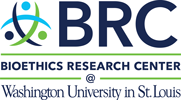Religion and Support for Genomic Healthcare: An Exploratory Study of the US Public and Faith Leaders
GRANT
Ethical, Legal and Social Implications (ELSI) Research (R01)
Grant Number: 1R01HG012830-01
9/22/2022 – 6/30/2025
KEY PERSONNEL
- James M. DuBois, DSc, PhD
Principal Investigator - Lauren L. Baker, PhD
Co-Investigator - Jenine Harris, PhD
Biostatistician - Scott Thumma, PhD
Recruitment Consultant - Gabrielle Kennedy, MDiv, MBA
Recruitment Consultant
PROJECT MANAGER
- Kari A. Baldwin, MSW
Senior Project Manager
DESCRIPTION
Ninety percent of the US public believes in some kind of higher power and 55% pray daily. Past research has found that religiosity is a strong predictor of concerns about prenatal genetic testing, gene editing, and development of mRNA vaccines. However, very little is known about why religion so strongly influences attitudes toward genomics and genetic healthcare (GGH). This grant will explore the specific factors associated with attitudes toward GGH such as religious affiliation, personal prayer life, integration with daily living, and views of the human body and creation. Additionally, few studies have explored ways public health officials might engage with faith communities on GGH issues. In this project, we will work directly with diverse Christian, Jewish, and Muslim faith leaders in the US to understand how to engage respectfully and constructively with faith communities on GGH issues.
This 3-year study is funded by the National Institutes of Health, National Human Genome Research Institute (NIH NHGRI). In phase one, we will conduct a national survey with 4800 adults in the US. The Healthcare, Values, and Spiritual Life Survey asks about personal religious and spiritual beliefs and attitudes toward important GGH activities. Building on what we learn from the HVS Survey with the US public, in phase two we will conduct 180 in-depth interviews with faith leaders from six major religious groups (Catholic, Evangelical, Mainline Protestant, Black Protestant, Jewish, and Muslim). Faith leader perspectives will help us interpret our survey findings and identify ways genetic medicine can respectfully and constructively engage with people of faith about genetic healthcare issues.
PUBLICATIONS
Data collection in progress.

